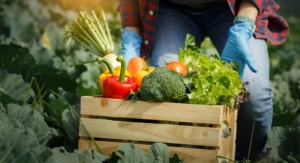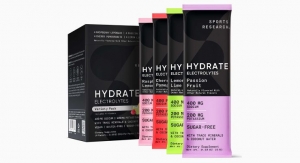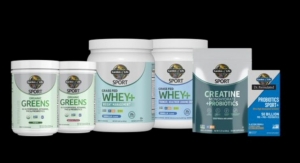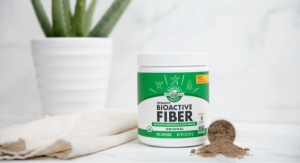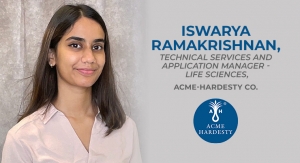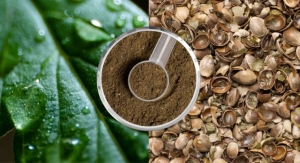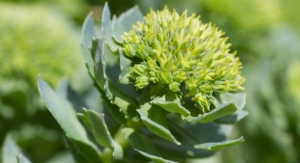11.01.13
To support the growing demand for credible, third-party verified non-GMO products, NSF International, Ann Arbor, MI, will join the Non-GMO Project as a Technical Administrator in early 2014 offering retail grocers, food growers, manufacturers and restaurants another option to earn verification for the trusted non-GMO label. NSF is currently conducting beta tests on its Non-GMO Project quality system and infrastructure with an aim to be fully operational in 2014.
Recognizing the increasing consumer demand for non-GMO foods, retailers and food manufacturers/processors have increased their efforts to deliver credible, certified food options. Whole Foods Market recently announced that by 2018 all products in its U.S. and Canadian stores must be labeled to indicate if they contain genetically modified organisms (GMOs).
“We’re responding to our customers who have consistently asked us for GMO labeling, and we are doing so by focusing on where we have control: in our own stores,” said Walter Robb, co-CEO of Whole Foods Market. “We are working together with our supplier partners to grow our non-GMO supply chain to ensure we can continue to provide these choices in the future. NSF International is providing an important service to help meet the demand for Non-GMO Project verification.”
“As a broad-based food safety and quality assurance provider, and given the increased consumer and retailer demand for non-GMO verified foods, it made sense for NSF International to add this program to its growing portfolio of food safety and quality service offerings,” said Tom Chestnut, vice president of NSF International’s Global Food Division. “NSF International has a network of hundreds of expert auditors worldwide in addition to nearly 70 years of food certification and auditing expertise.”
What does “Non-GMO Project Verified” mean? Verified Non-GMO Project products have gone through a rigorous process to ensure they meet consensus-based standards. The Non-GMO Project verification process requires:
• Ongoing testing of all major at-risk ingredients—any ingredient being grown commercially in GMO form must be tested prior to use in a verified product.
• An action threshold of 0.9%. This is in alignment with laws in the European Union, where any product containing more than 0.9% GMOs must be labeled. Absence of all GMOs is the target for all Non-GMO Project Standard compliant products. Continuous improvement practices toward achieving this goal must be part of the participant’s quality management systems.
• After at-risk testing is complete, companies are required to implement rigorous traceability and segregation practices to ensure ingredient integrity through to the finished product.
• For low-risk ingredients, a thorough review of ingredient specification sheets is conducted to ensure absence of GMO risk.
• Verification is maintained through an annual audit, along with on-site inspections for high-risk products.
Dietary supplements, pharmaceuticals, cosmetics and other personal care products can earn Non-GMO Project verification. A complete listing of verified Non-GMO Project products is available on the Non-GMO Project website.
Recognizing the increasing consumer demand for non-GMO foods, retailers and food manufacturers/processors have increased their efforts to deliver credible, certified food options. Whole Foods Market recently announced that by 2018 all products in its U.S. and Canadian stores must be labeled to indicate if they contain genetically modified organisms (GMOs).
“We’re responding to our customers who have consistently asked us for GMO labeling, and we are doing so by focusing on where we have control: in our own stores,” said Walter Robb, co-CEO of Whole Foods Market. “We are working together with our supplier partners to grow our non-GMO supply chain to ensure we can continue to provide these choices in the future. NSF International is providing an important service to help meet the demand for Non-GMO Project verification.”
“As a broad-based food safety and quality assurance provider, and given the increased consumer and retailer demand for non-GMO verified foods, it made sense for NSF International to add this program to its growing portfolio of food safety and quality service offerings,” said Tom Chestnut, vice president of NSF International’s Global Food Division. “NSF International has a network of hundreds of expert auditors worldwide in addition to nearly 70 years of food certification and auditing expertise.”
What does “Non-GMO Project Verified” mean? Verified Non-GMO Project products have gone through a rigorous process to ensure they meet consensus-based standards. The Non-GMO Project verification process requires:
• Ongoing testing of all major at-risk ingredients—any ingredient being grown commercially in GMO form must be tested prior to use in a verified product.
• An action threshold of 0.9%. This is in alignment with laws in the European Union, where any product containing more than 0.9% GMOs must be labeled. Absence of all GMOs is the target for all Non-GMO Project Standard compliant products. Continuous improvement practices toward achieving this goal must be part of the participant’s quality management systems.
• After at-risk testing is complete, companies are required to implement rigorous traceability and segregation practices to ensure ingredient integrity through to the finished product.
• For low-risk ingredients, a thorough review of ingredient specification sheets is conducted to ensure absence of GMO risk.
• Verification is maintained through an annual audit, along with on-site inspections for high-risk products.
Dietary supplements, pharmaceuticals, cosmetics and other personal care products can earn Non-GMO Project verification. A complete listing of verified Non-GMO Project products is available on the Non-GMO Project website.






